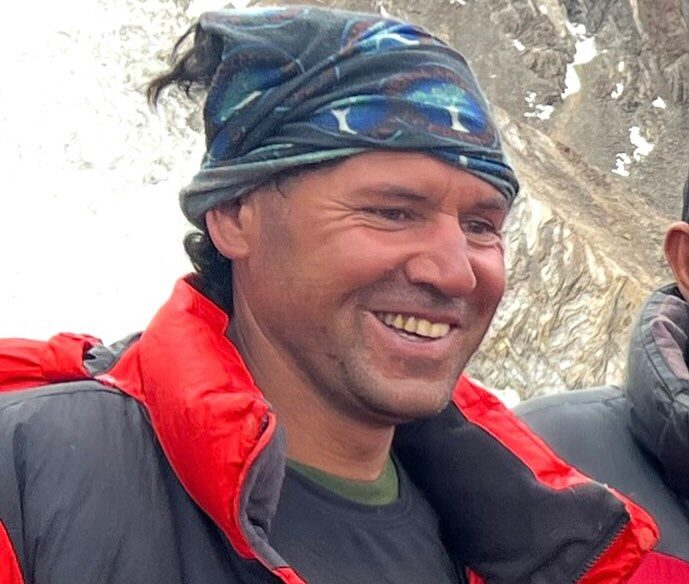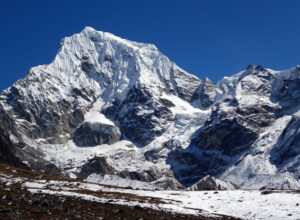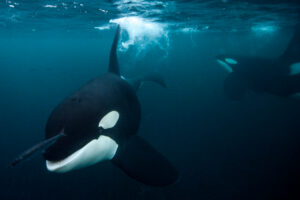Murad Sadpara of Pakistan died yesterday on Broad Peak after he was hit by a falling rock. Two small teams were still climbing over the weekend, and a Portuguese woman had hired Sadpara to bring down her equipment from Camp 3. During that assignment, the accident occurred. He was wearing a helmet but was too badly injured nonetheless.
Sadpara was one of those who helped retrieve the body of Muhammad Hassan from K2 last week.
Rescue came too late
Both the Portuguese client and several local climbers, including Naila Kiani — wrapping up her cleanup operation on K2 — called for an emergency rescue. Climbers from Sadpara’s village quickly volunteered, but since the climbing season has ended, they were all back at their homes and needed a flight to the mountain. Meanwhile, Akbar Syed of Lela Peak Expeditions sent two high-altitude porters who were still on Broad Peak to try to help the injured man.
Helicopter pilots airlifted the two first rescuers yesterday, but by the time they reached the victim, he had already perished. A second flight today brought another two climbers. Together, they will all try to retrieve Sadpara’s remains and bring them home.
One of the best
“He was one of the best,” said a devastated Naila Kiani. “We had big plans for him, to get him trained and certified outside Pakistan.”
Sajid Sadpara, a climbing partner and neighbor from the same village, posted a video below of Murad Sadpara singing in the mountains.
“Gone too soon,” Sajid wrote.
Murad Sadpara was 33. He leaves a wife and four children. A strong, experienced climber, Murad Sadpara was well-known in the high-altitude community. Last year, he summited Nanga Parbat twice in six days without supplementary oxygen.
He had a reputation as a rescuer at heart, devoted to helping others. Last year, he took part in another recovery mission, bringing down the body of the late Ali Akhbar Sakhi of Afghanistan.
“Murad would run to save anyone [who] needed help,” Kiani said.
Too much red tape
While grateful to all involved, Naila Kiani remarked that administrative clearance for the rescue took too many hours. “If we had reached Murad sooner, today’s news might have been different,” she wrote today.
Military helicopters are the only ones able to fly in Pakistan’s mountains. While the pilots are highly skilled, helicopter availability is limited and expensive. Kiani says that the procedures to start a rescue must become more streamlined.
She also suggests that a private helicopter service for areas that are not militarily sensitive would greatly aid mountain rescue in Pakistan.






